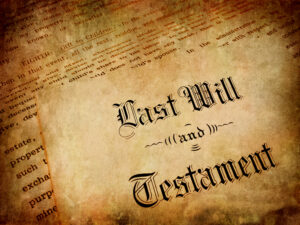There are many different terms you may hear in connection with the estate planning process and one of these is proving a will. This means that a witness to the will itself gives testimony to a state government official that they indeed did see the signing of the will. This might be done with the clerk of the probate court, the clerk of the surrogate’s court or the register of wills. 
It can be difficult to locate witnesses if the original will was signed many years ago. This is because that person may no longer be able to give testimony, might have moved away or be deceased. The will can be accepted without being proved in some states if all interested heirs and parties give consent. If the witnesses are not available in other states, the will can be proved by the testimony of two persons who did not witness the will signing directly but can identify the decedent’s signature. These people are known as non-subscribing witnesses.
When thinking about getting witnesses to see the signing of your will, make sure you think carefully about people who will be relatively easy to locate in the event that something happens to you sooner rather than later. For more information about creating your own estate plan, schedule a consultation with an estate planning lawyer today.
